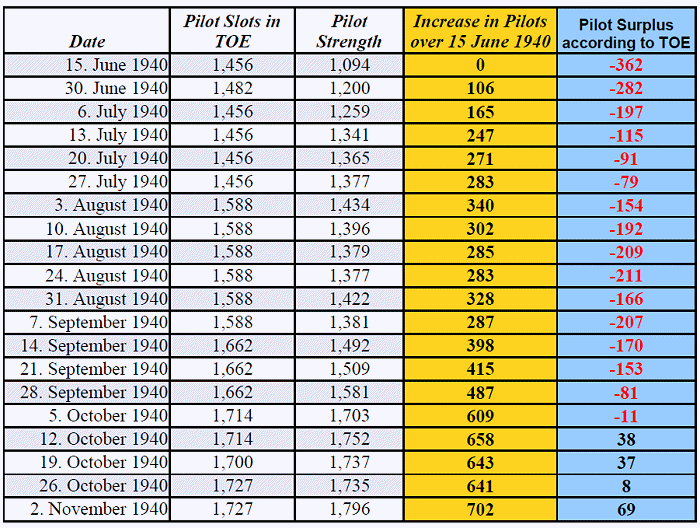An Ancient wrote:They weren't physically running out of bodies, but they were suffering a lot of casualties amongst combat experienced pilots, it's all well and good saying that if someone goes down you've got a replacement, but when the guy who went down has fought in the Battle of France and survived 3 months over the skies of Southern England, and you're replacements are three guys with a total of 40 hours in a Spitfire between them, you have problems. Especially since they'll be facing the guys who got the better of the original pilot.
The skill degradation problem was very real on both sides but the probability is that it was hitting the Germans harder than the British. The reason is that when the Battle of France/Britain started, Germany had a corps of experienced pilots who had gained their experience in Spain and then over Poland. In contrast, the British pilots lacked that experience. Now, the replacement pilots from both sides were coming out of training schools and, as a first approximation, they were equally inexperienced numptys. So, the Germans are replacing experienced pilots with numptys while the British are replacing less-experienced pilots with numptys. So, relatively speaking, the skill degradation on the British side is less.
However, note I said "as a first approximation". Two things work to change this equation. One is the different way the two air forces fielded their pilots. German pilots were tossed into the battle straight out of training school and kept there until they were either killed or scored 100 victories. British pilots were tossed into the battle for a tour of duty, then pulled out and "rested". Usually "rested" meant sent to a training school where they passed their experiences on to the trainees. So, by the middle/end of the battle, the numptys leaving British training schools were probably a touch less numptyish than their German equivalents. The other thing was, the British rotated their fighter squadrons; because the Germans could reach only the lower 10 percent of the UK, fighter squadrons in the other 90 percent could be rested and receive new pilots in relative tranquility. Again, this meant that newly-arriving replacements could get some expert tuition from veterans before being thrown back into the battle. So, it's justifiable to say that the standard drop with RAF pilots was significantly less marked than with the Germans.


